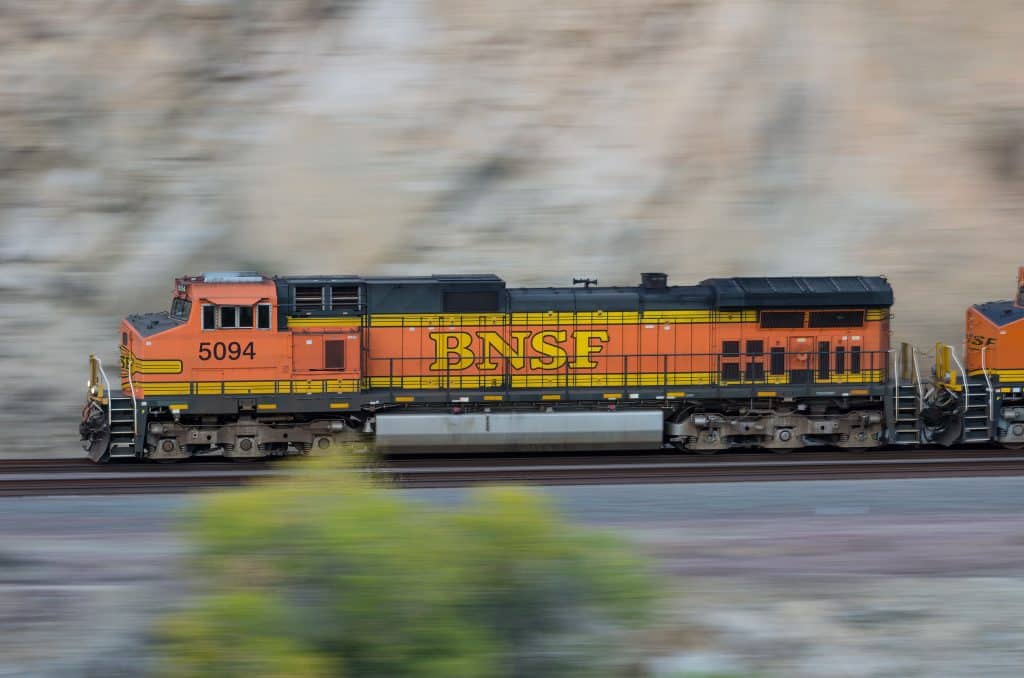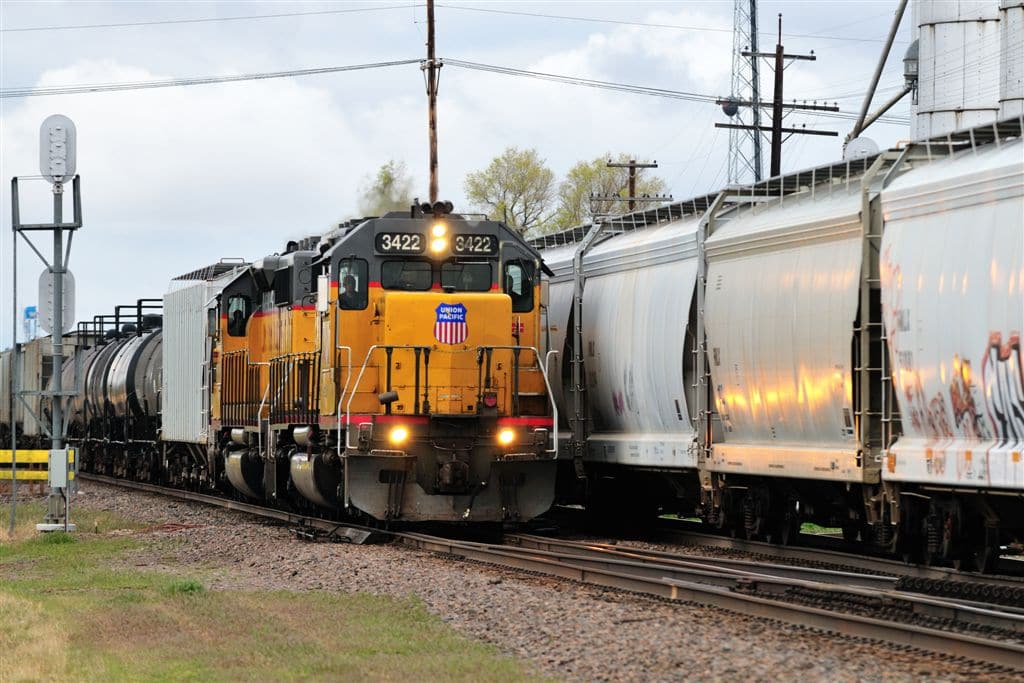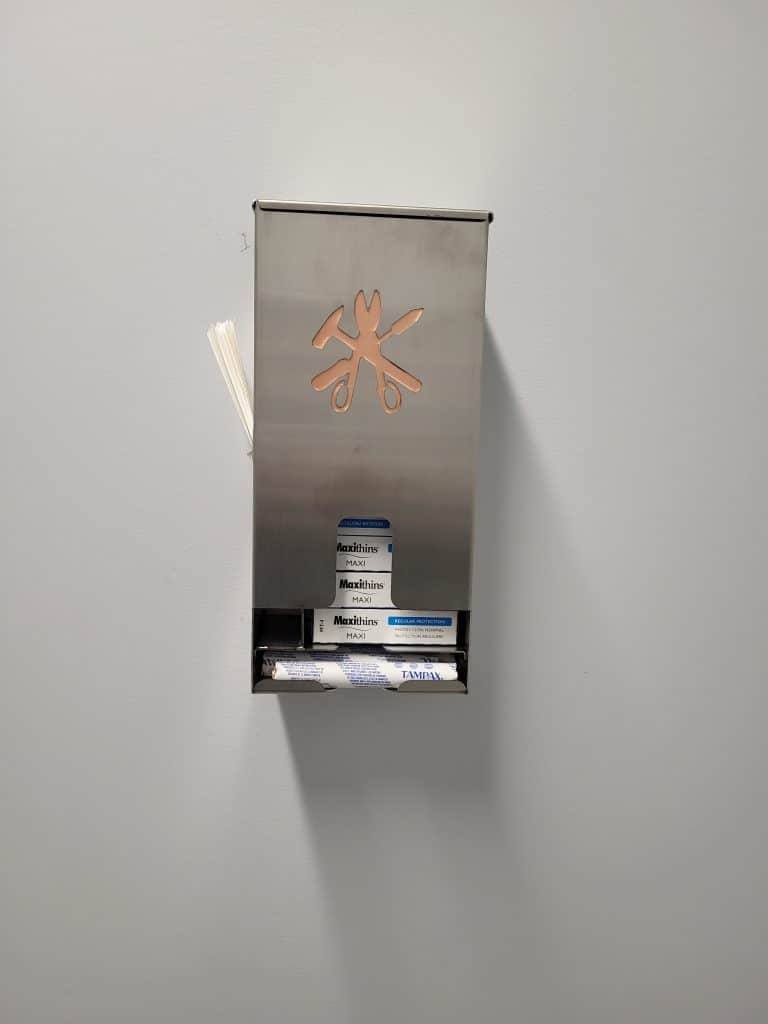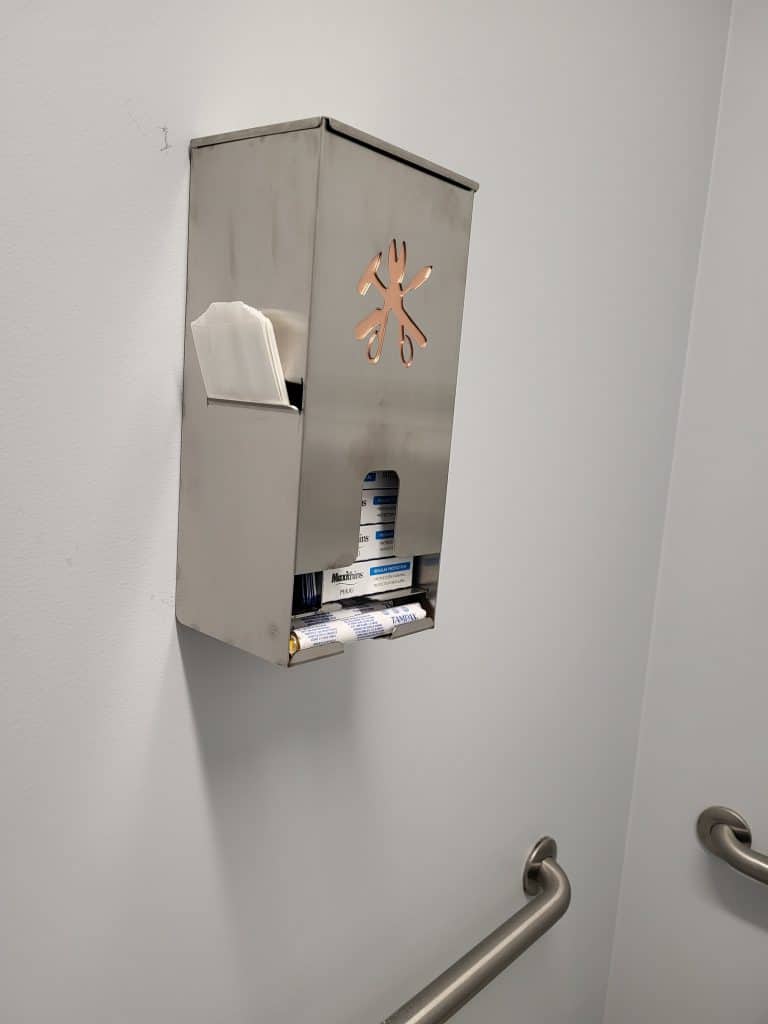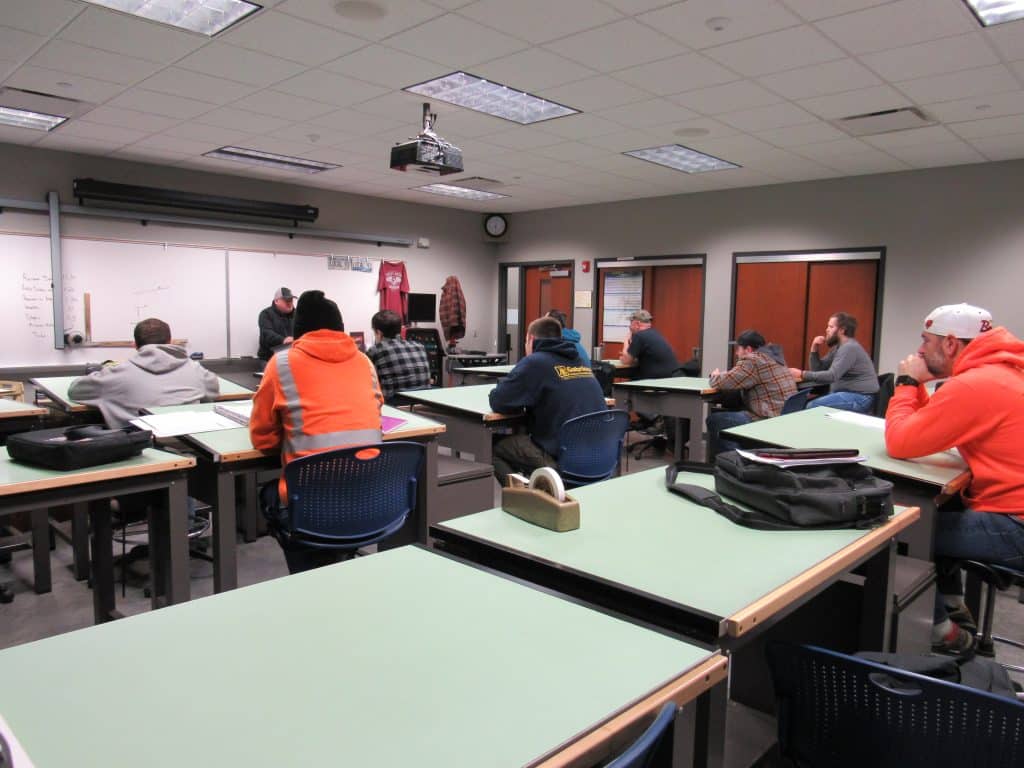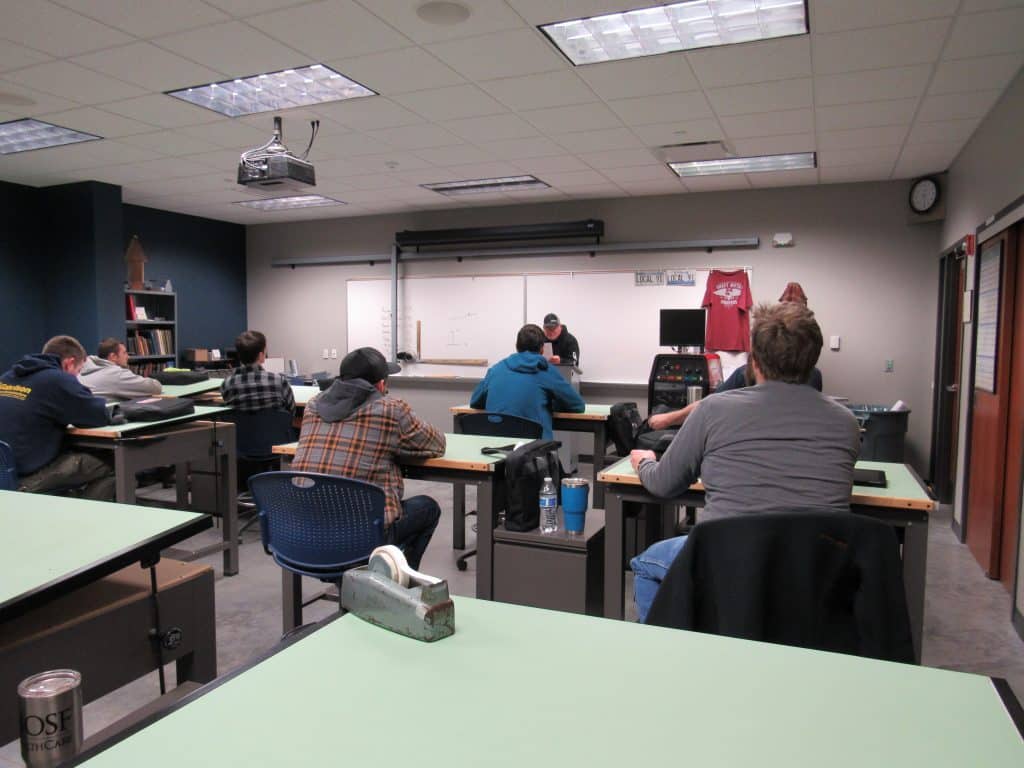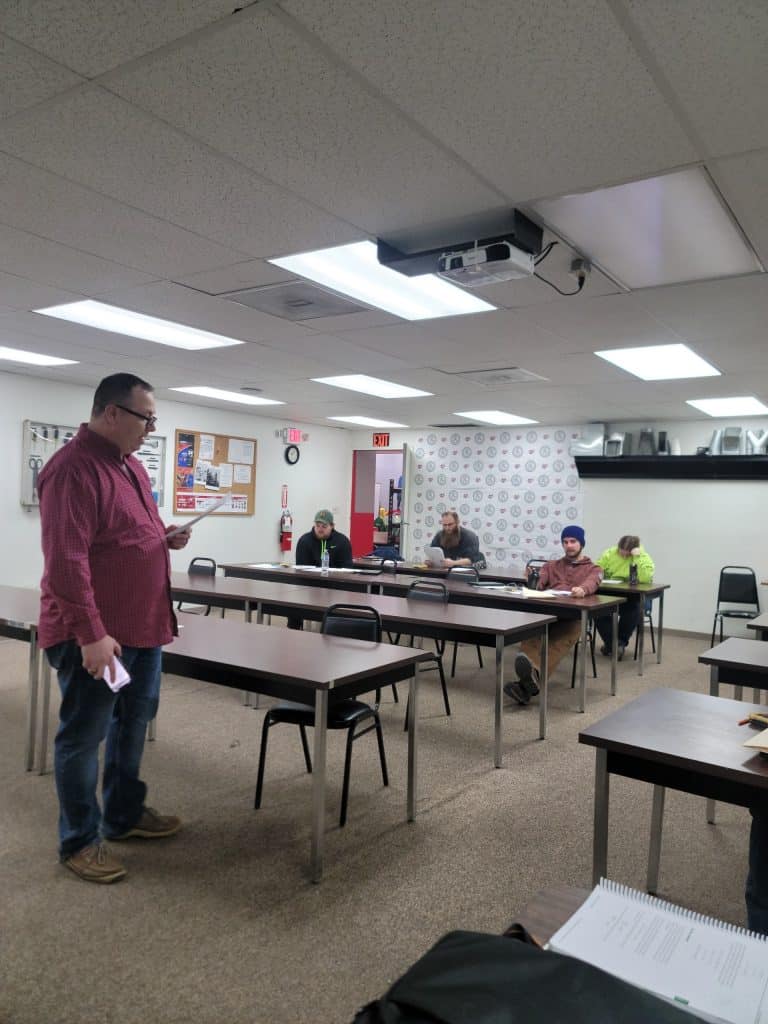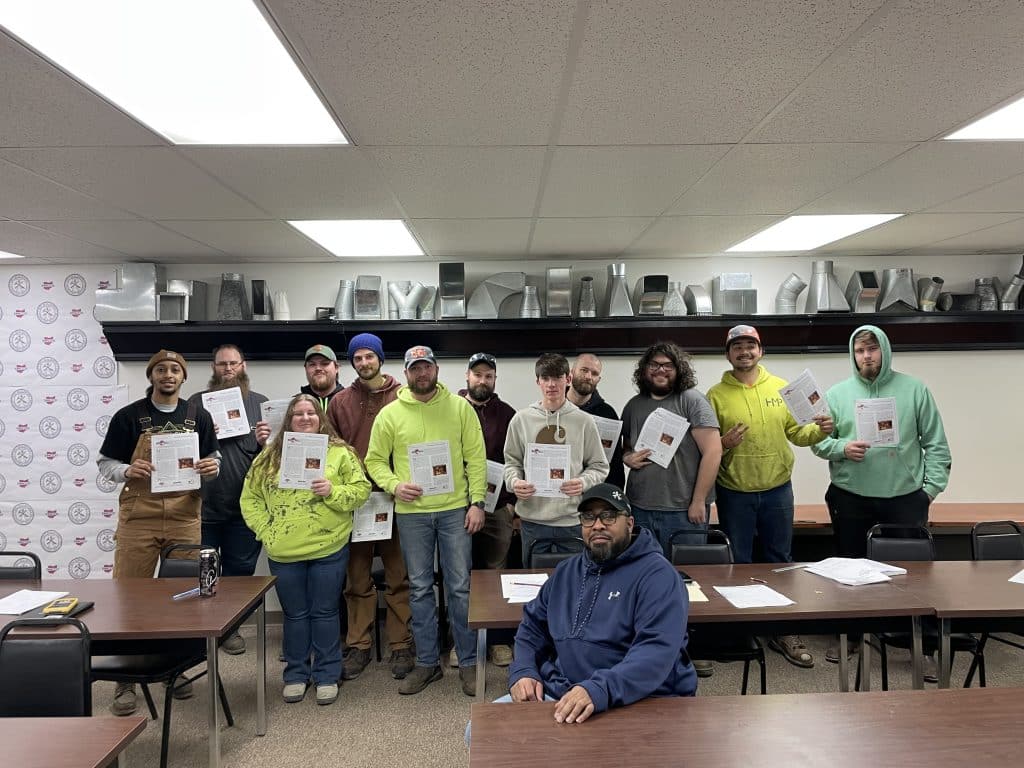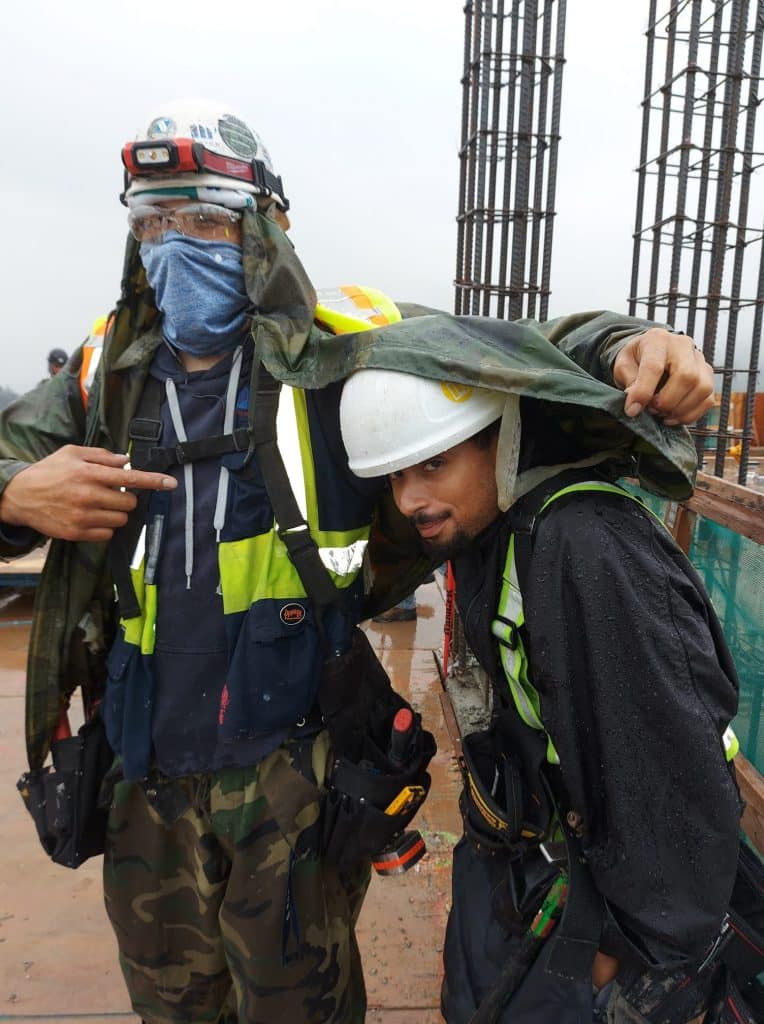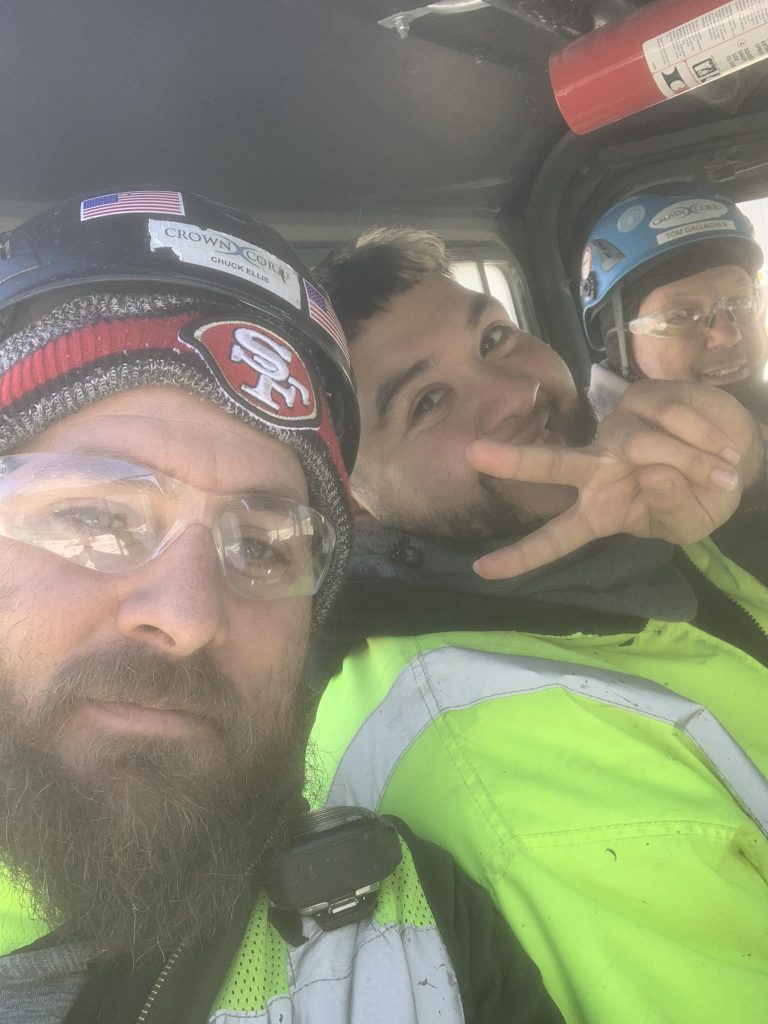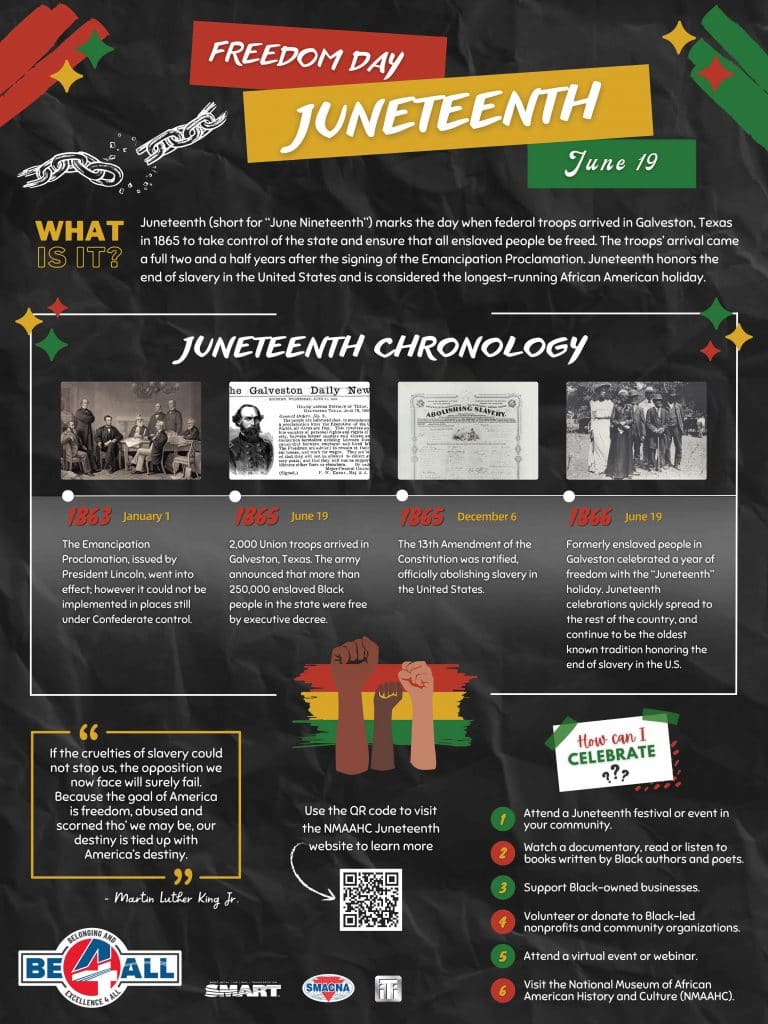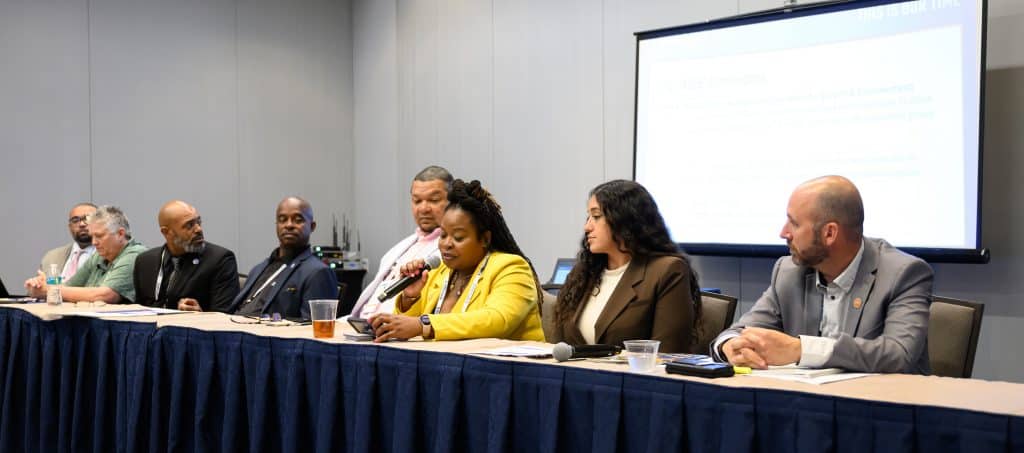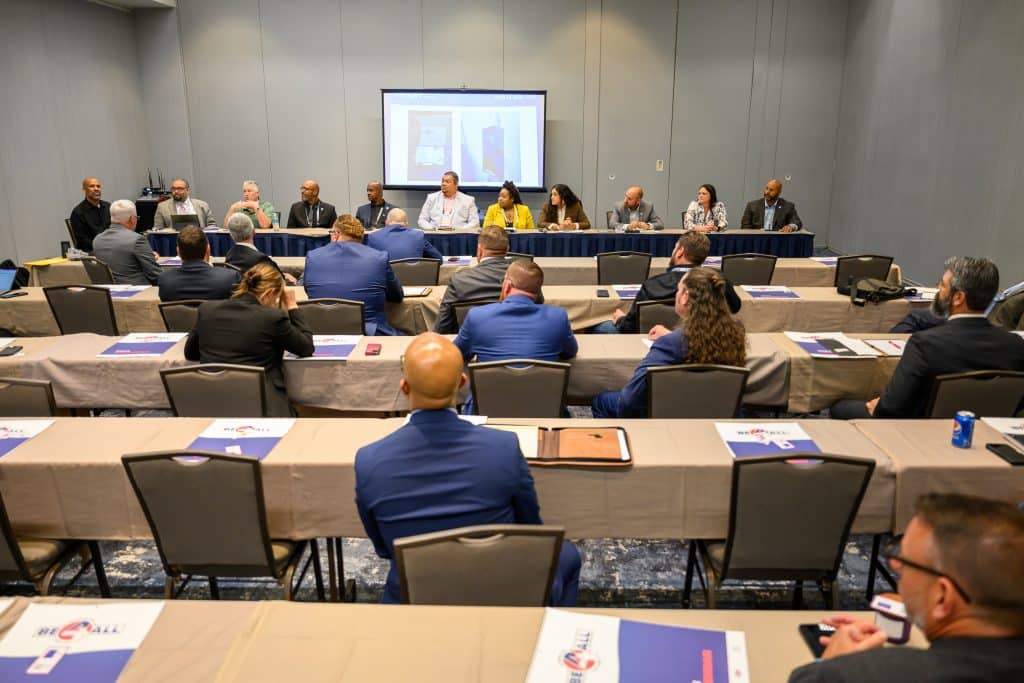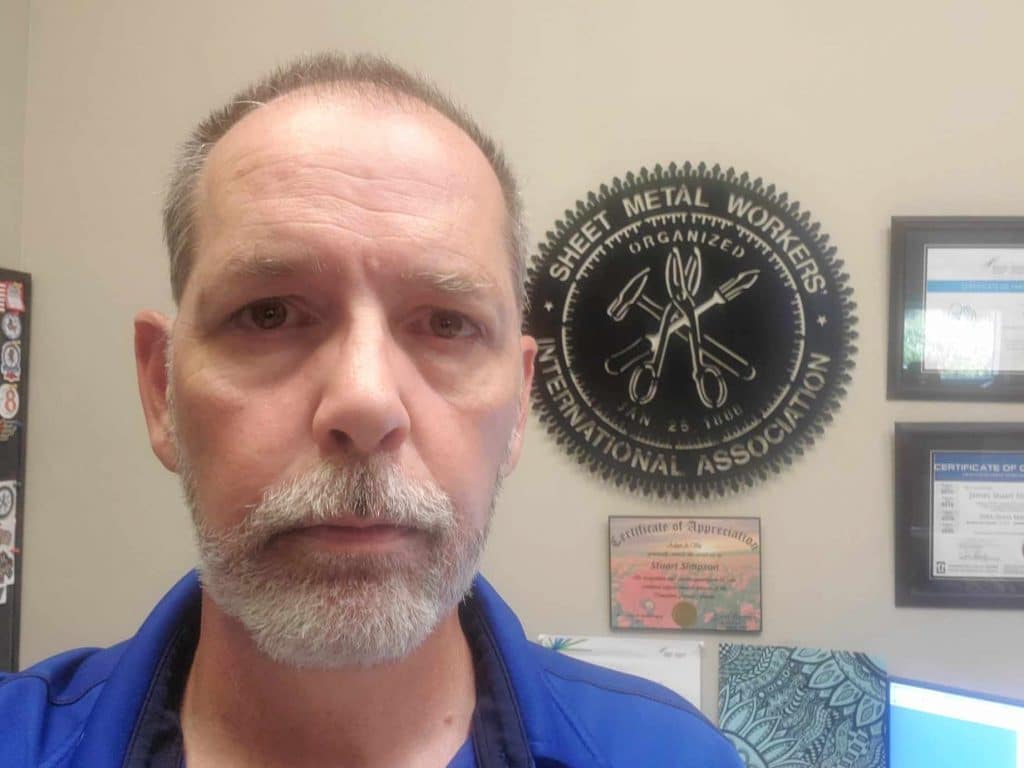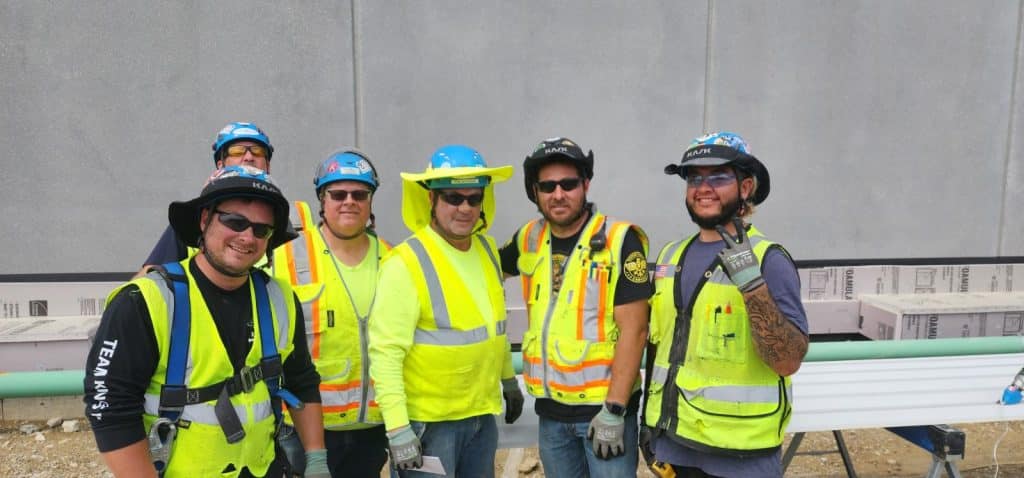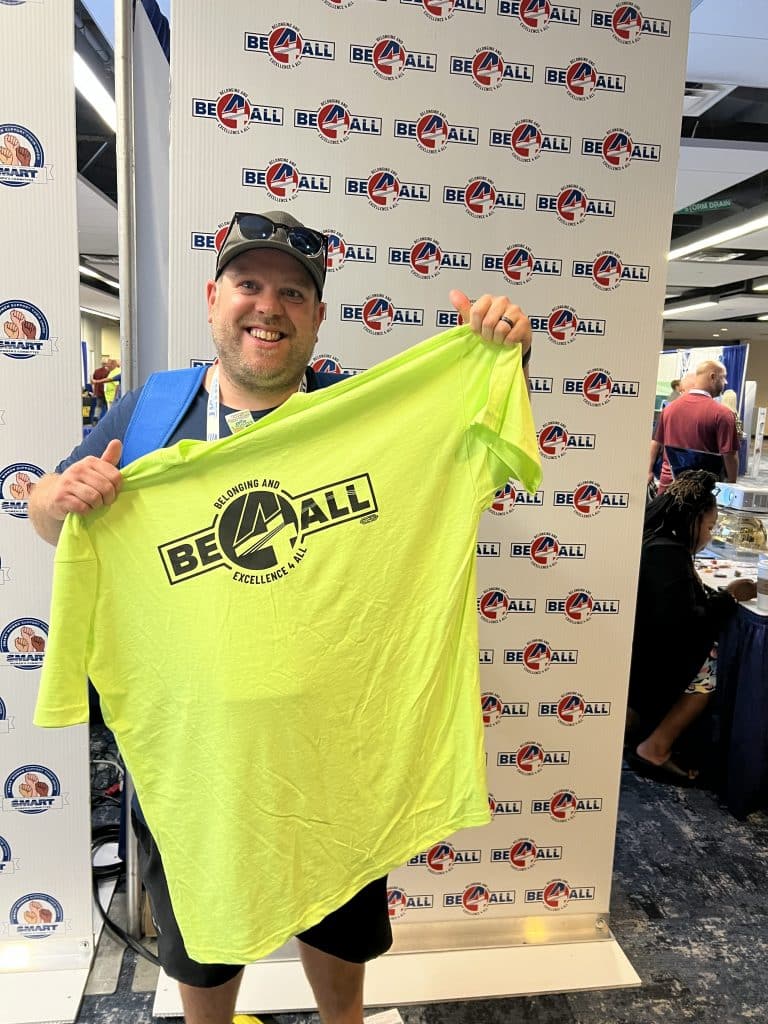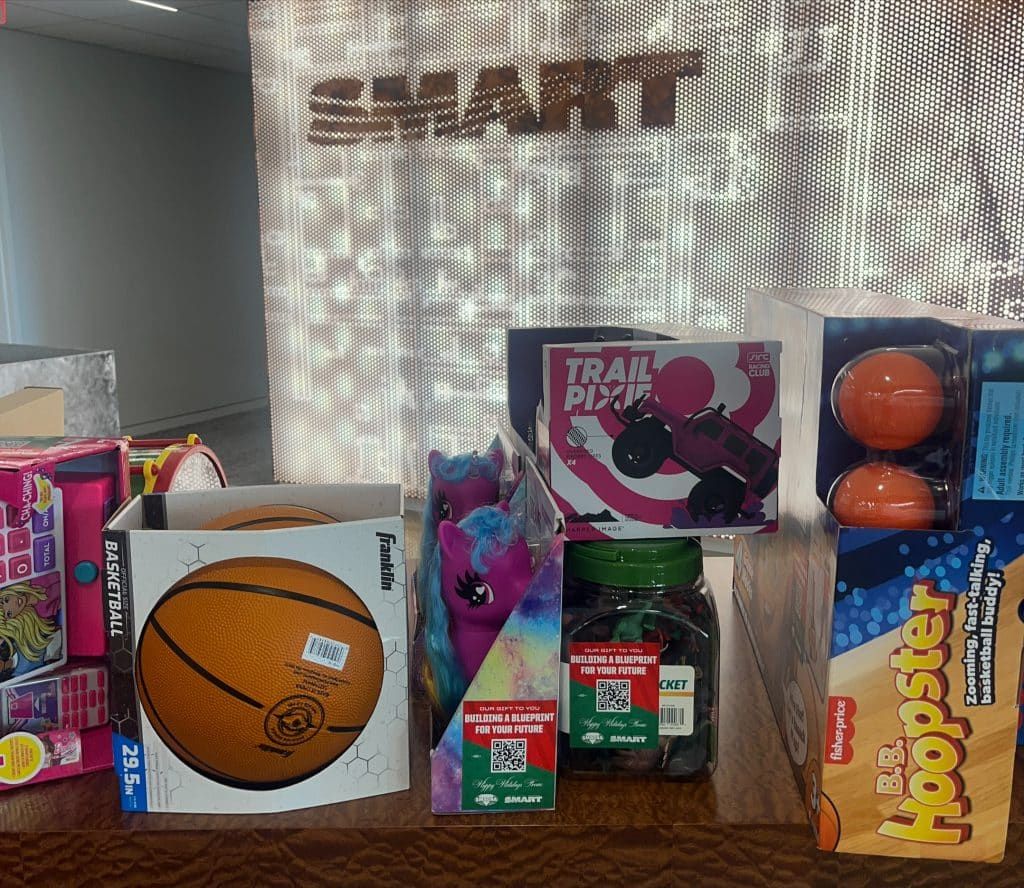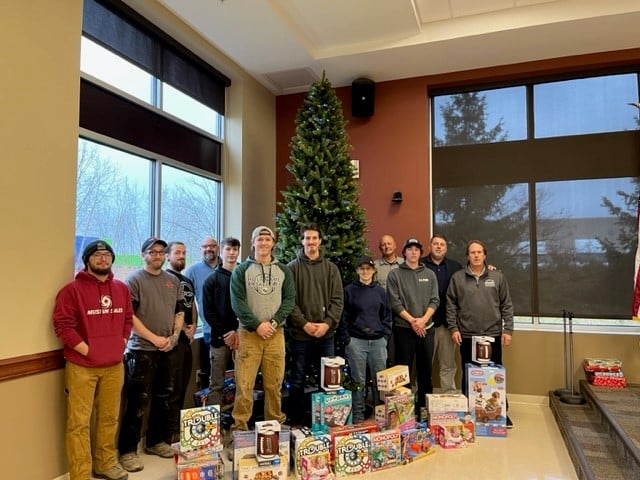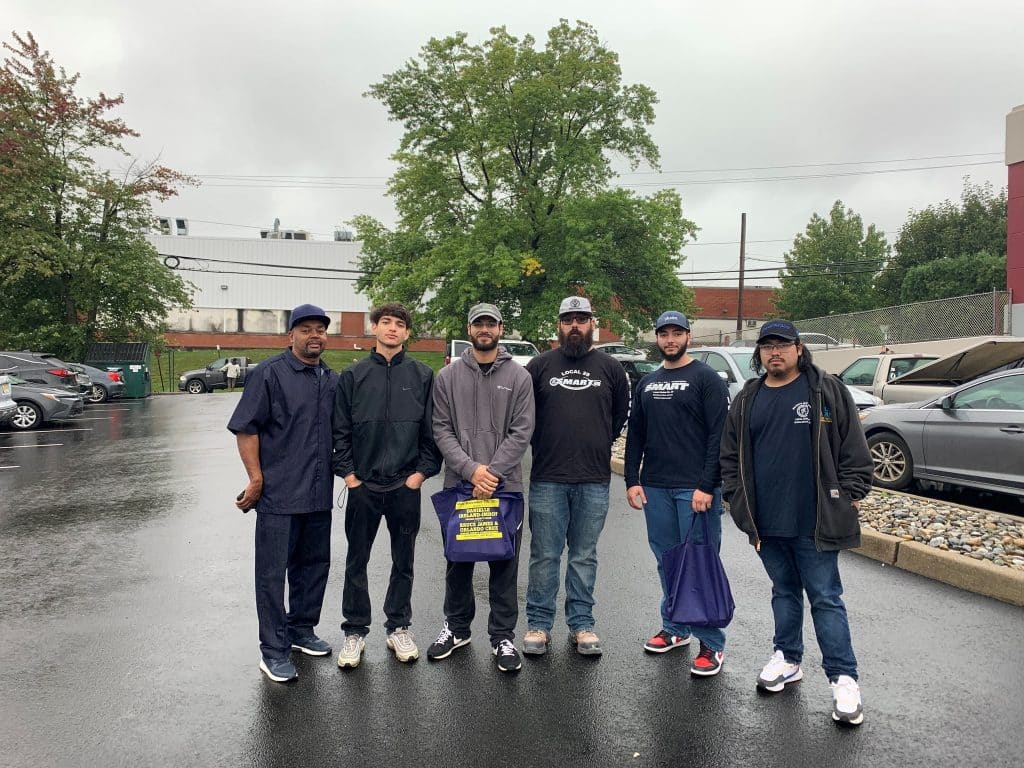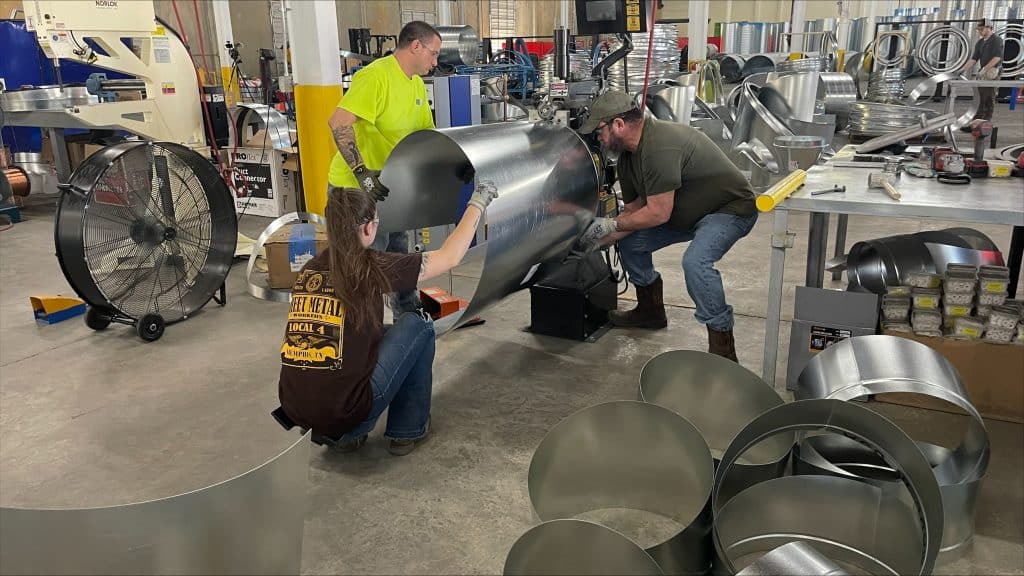More than 4,000 tradeswomen and allies converged for Tradeswomen Build Nations 2023 (TWBN) in Washington, DC, from December 1–3 for an awe-inspiring display of sisterhood, strength and solidarity. Highlighted by the annual banner parade, where tradeswomen took the streets of DC to showcase their union pride, the conference was an example of the progress and momentum carrying both SMART and the labor movement into the future.
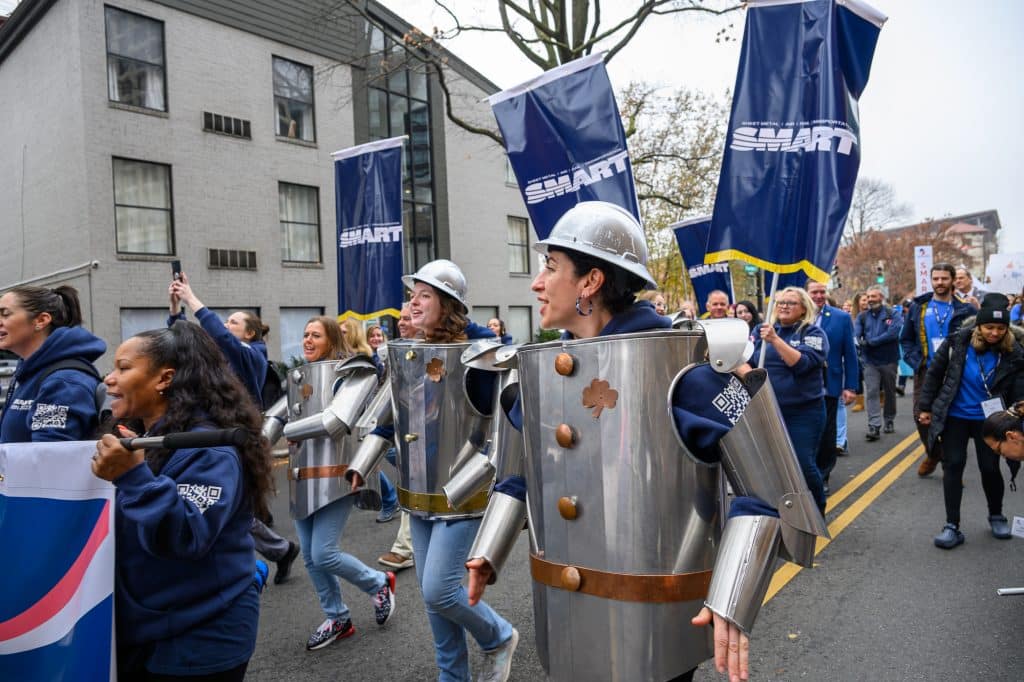
Plenary speakers illustrate progress made, work ahead
Plenary sessions on Saturday and Sunday brought various speakers from the labor movement, the United States government and the construction industry to TWBN, all of whom spoke to the progress that has been made for women in the trades — and the importance of building on that progress in the years to come.
North America’s Building Trades Unions (NABTU) President Sean McGarvey delivered remarks on Saturday that largely focused on the union difference, particularly with a labor-friendly administration in power and an extraordinary amount of work on the horizon. After highlighting worker wins across North America, from infrastructure legislation and projects in the United States to clean energy tax credits in Canada — which mandate provinces to require inclusive restrooms on jobsites — McGarvey homed in on the important role unions need to play.
Collective bargaining agreements, project labor agreements and community benefits agreements are making the construction industry more equitable and inclusive, he said, helping bring women and underrepresented communities onto jobsites. And since 2016, NABTU affiliates like SMART have increased women participation in apprenticeships by 50%, thanks in no small part to pre-apprenticeship programs. But there is more work to be done, particularly when it comes to childcare obstacles, eliminating hazing and discrimination on the jobsite, and more.
“We are on the right track,” McGarvey declared. “You are the future of our unions.”
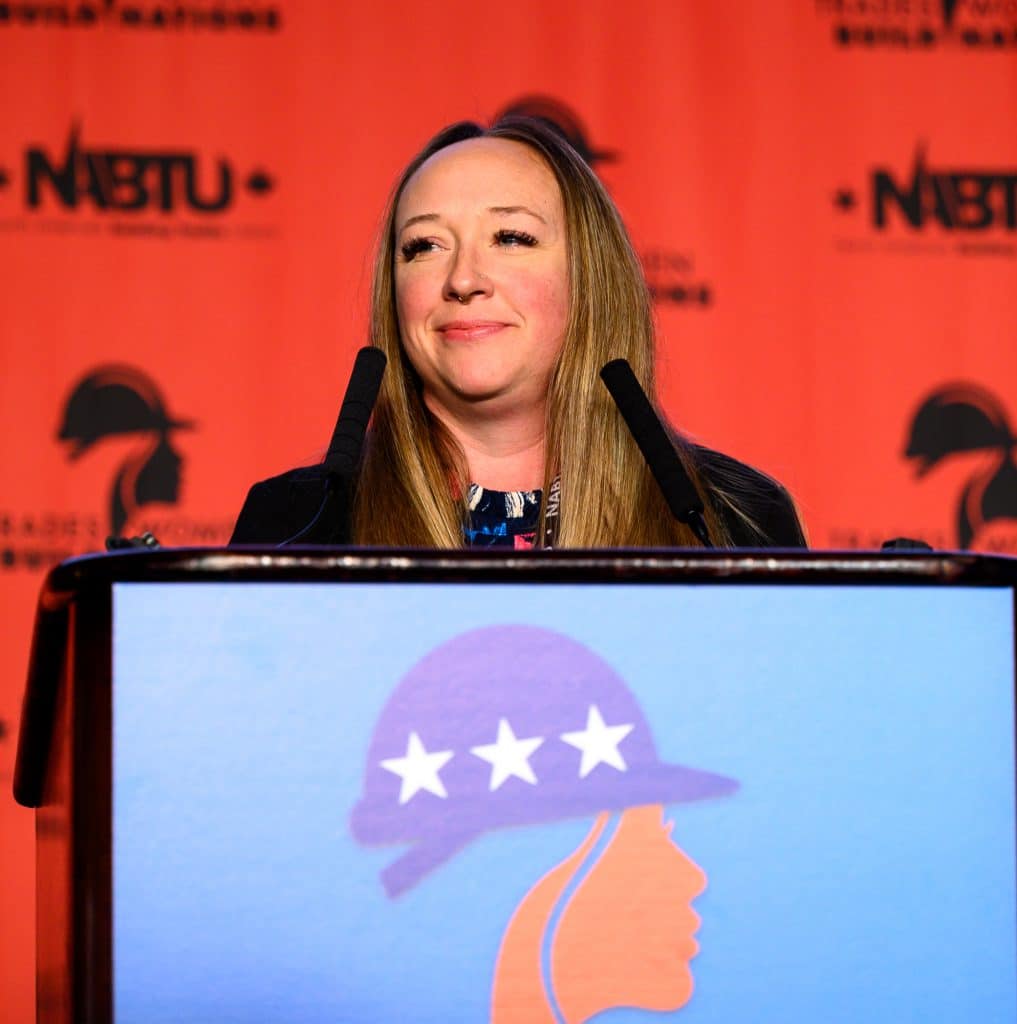
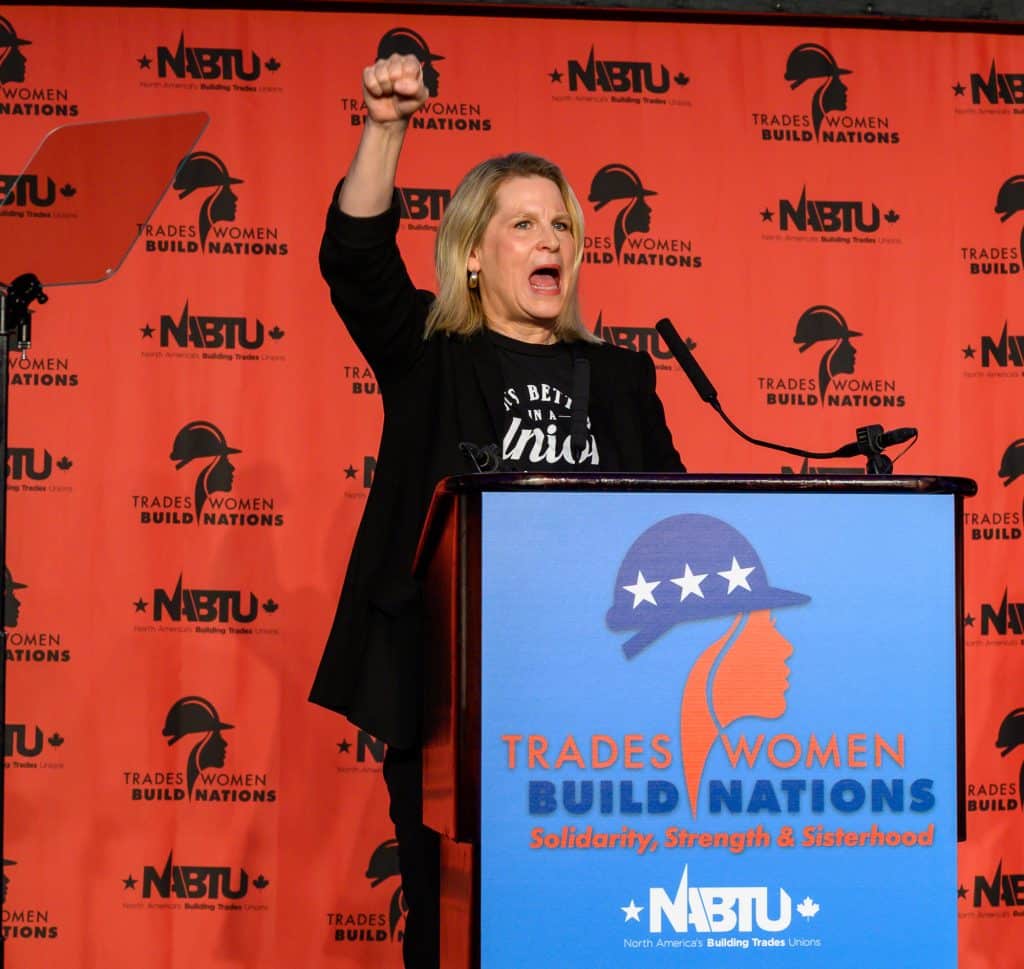
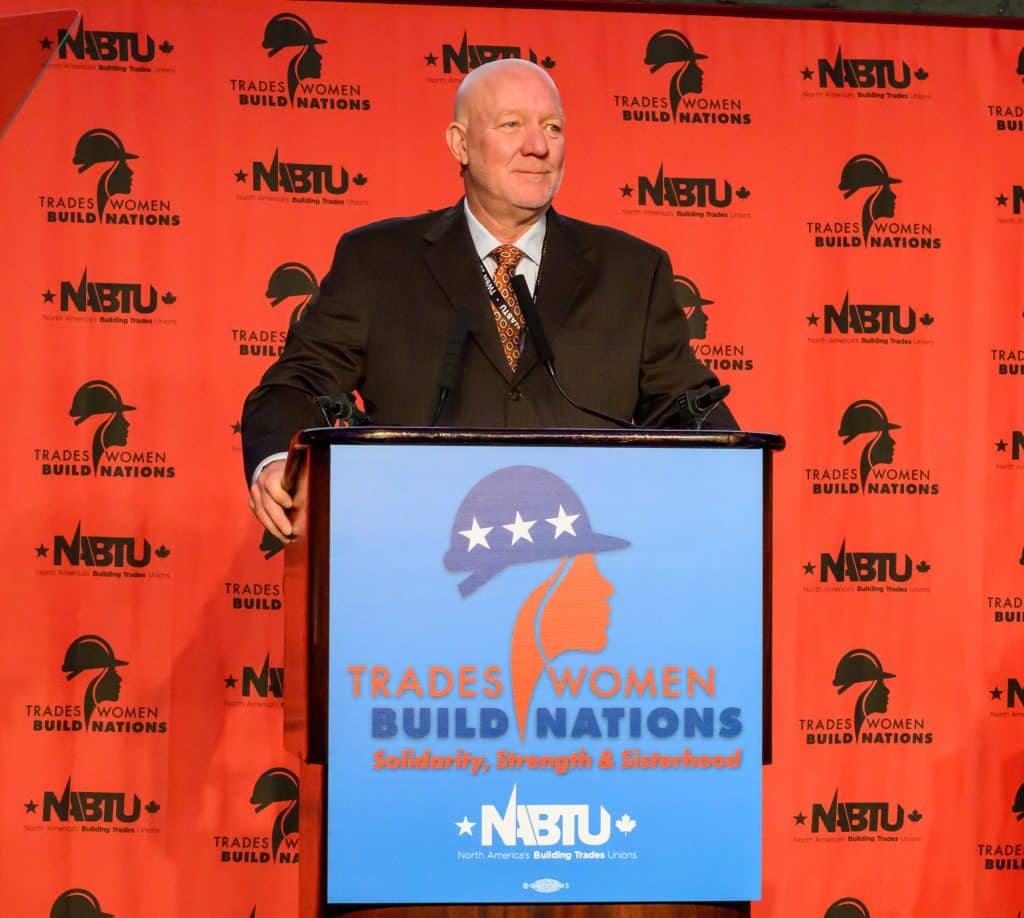
McGarvey was followed by Stanley Black & Decker President Maria Ford and United States Speaker of the House Emeritus Nancy Pelosi, two glass-ceiling-shattering women who discussed the importance of gender equity and inclusiveness in business and in government. Ford detailed her journey from intern to president and stressed that diversity and inclusion aren’t just about statistics and quotas, but about strengthening industries — pointing to the National Football League as an example of a company whose value spiked as it made strides to include more women. Pelosi, on the other hand, talked about how unions have built America into the country it is today, and how union jobs with prevailing wages can change women’s lives for the better. She also underlined the importance of passing legislation that creates more union jobs, expands childcare accessibility and more.
“We believe that when women succeed, America succeeds,” she declared.
AFL-CIO President Liz Shuler took the stage to reflect on the extraordinary growth TWBN has achieved during its 13 years, from small gatherings in conference rooms to standing-room-only rallies in enormous ballrooms. After thanking NABTU’s Tradeswomen Committee — which includes SMART Director of Special Projects Louise Medina — Shuler talked about taking the momentum of TWBN back to local unions across North America.
“We need every woman in America to see that construction is for them,” she said. “You are the best organizers.”
Shuler described some of the threats facing workers in North America, including corporate-controlled technology such as artificial intelligence. But, she noted, “you can’t build nations with an algorithm.” The strikes that defined 2023 demonstrate the determination of workers to seize their power, and it is imperative that SMART sisters and allies work to build on the foundation that has been laid.
“We’re going to keep growing, we’re going to keep marching, we’re going to keep winning together,” Shuler concluded.
On Sunday, Local 16 (Portland, Oregon) Organizer Korri Bus took the stage to tell her story and shed light on one of the most devastating recruitment obstacles in the trades: the lack of accessible, affordable childcare. Bus has been in the trade for approximately 17 years but had to step away temporarily in 2007, when she was forced to choose between her job and her need for reliable childcare. America’s existing childcare system is inadequate and far too expensive for workers across sectors — especially tradespeople, who work long hours outside the 9–5 schedule.
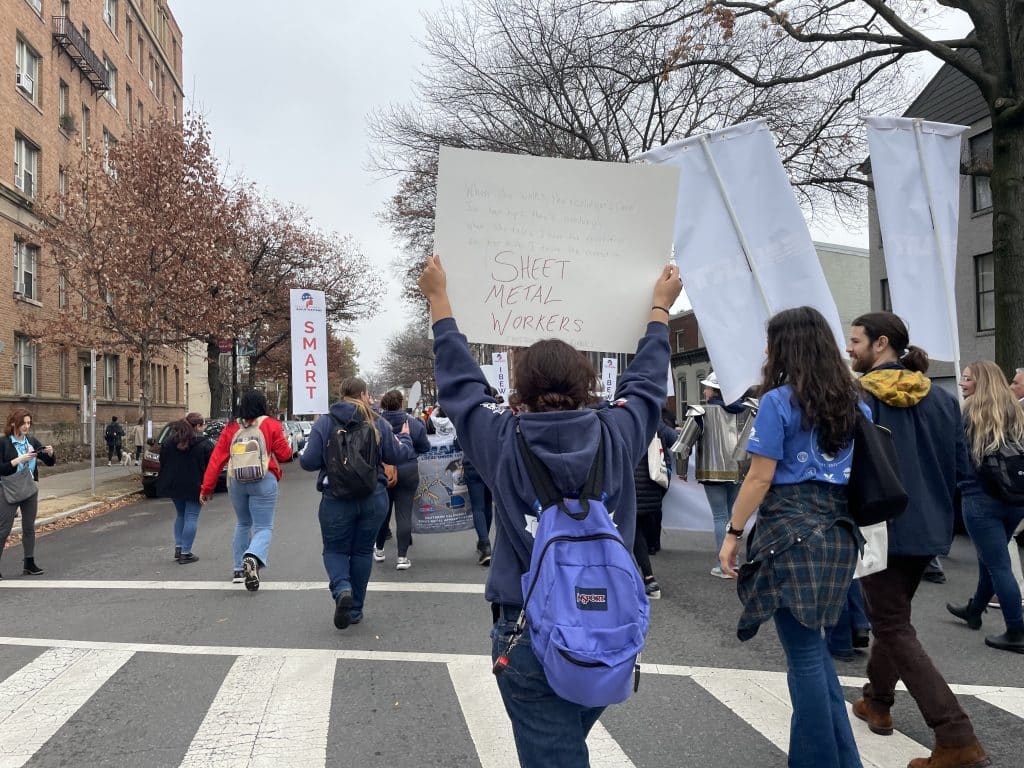
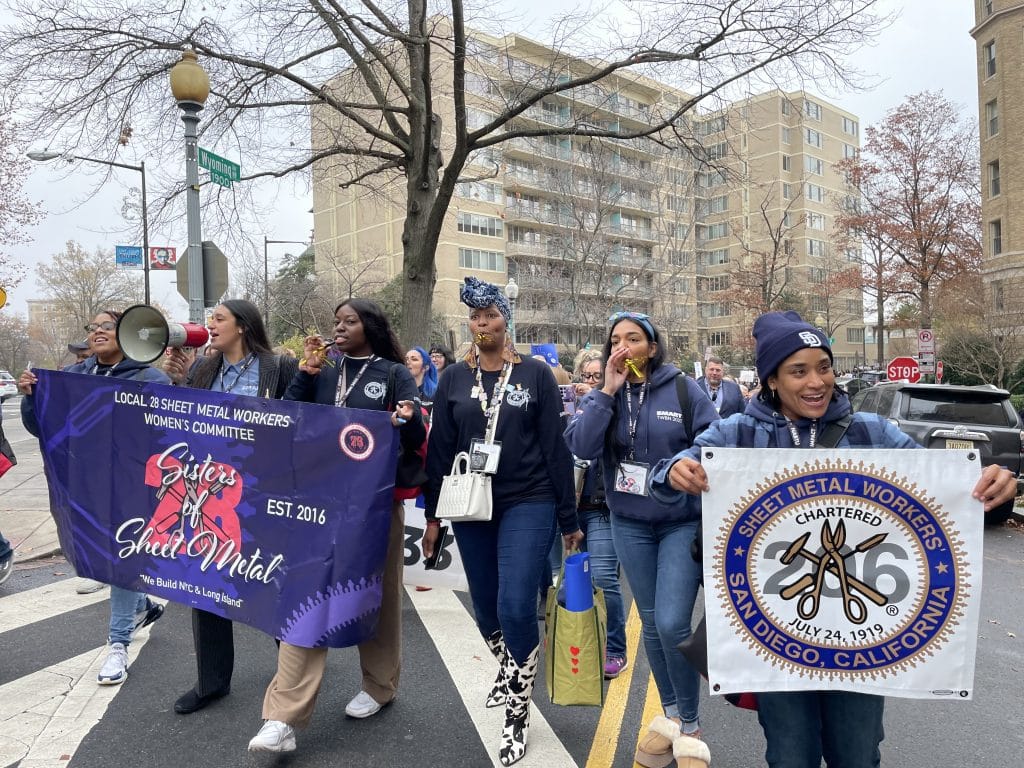
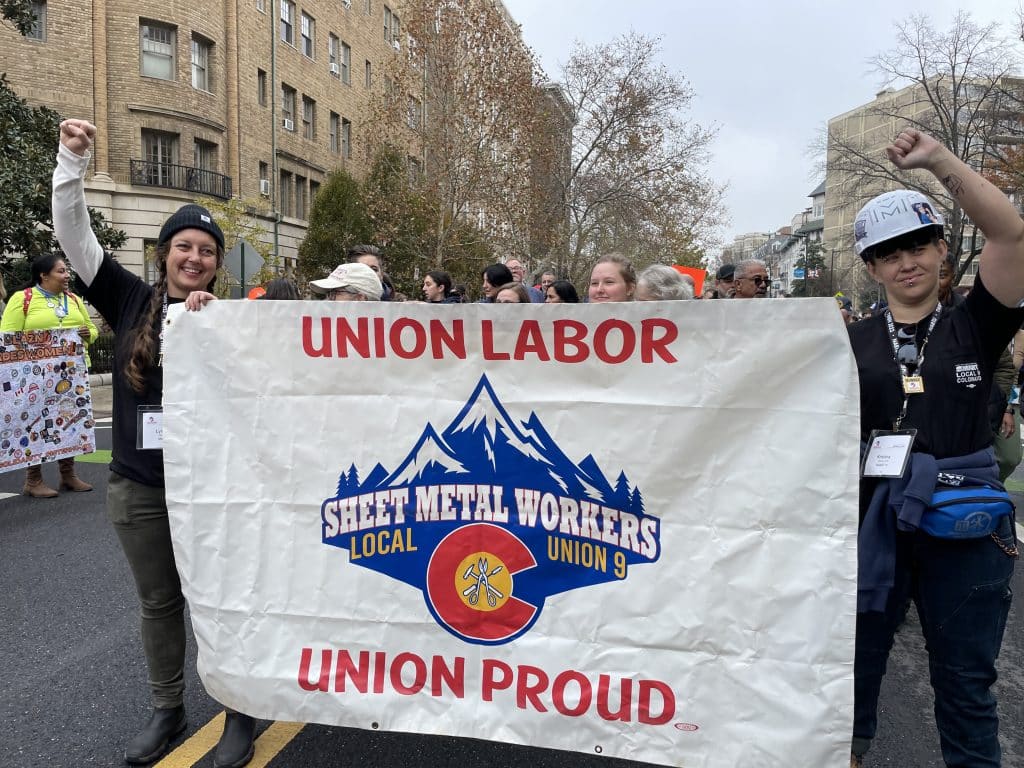
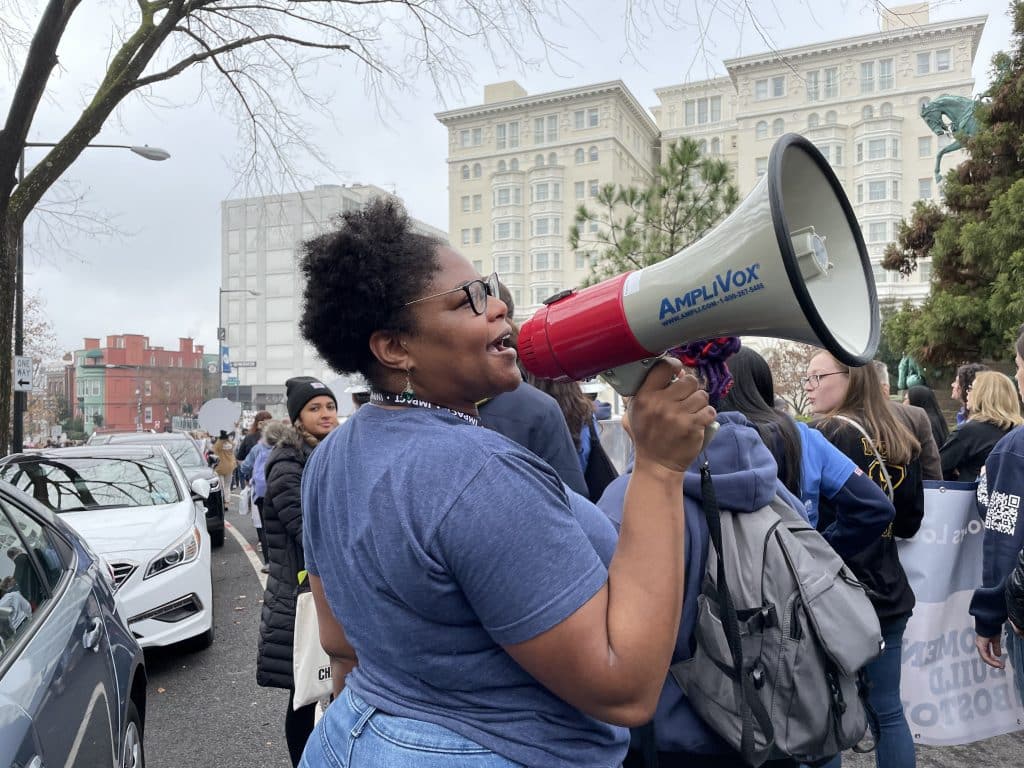
“It’s not just a personal struggle, it’s a collective challenge,” Bus said. “Together, let’s build a future where no parent in the trades has to choose between professional commitments and parental responsibilities.”
Other speakers throughout the weekend included International Union of Painters and Allied Trades (IUPAT) President Jimmy Williams, Jr., Acting U.S. Labor Secretary Julie Su and others. All speakers noted that TWBN 2023 was a signifier of fantastic growth — and urged attendees to perform the work, from organizing to pushing for proworker legislation, to make sure that progress continues.
“I came to Tradeswomen Build Nations for the first time in 2015 — there were 30 of us in the room. Now there are over 300 of us here.”
Shamaiah Turner, a SMART Women’s Committee member and Northeast Regional Council Business Development Representative
SMART sisters and allies get to work in breakout sessions
Breakout sessions on Saturday afternoon and Sunday morning put TWBN attendees to work, learning more about pressing issues facing women in the trades and brainstorming together on how to push forward. Sessions included “Women-Mentoring-Women in the Building Trades;” “Federal Policies Impacting Tradeswomen and the Infrastructure Generation;” “Moving Beyond Recruitment to Retention;” and many more.
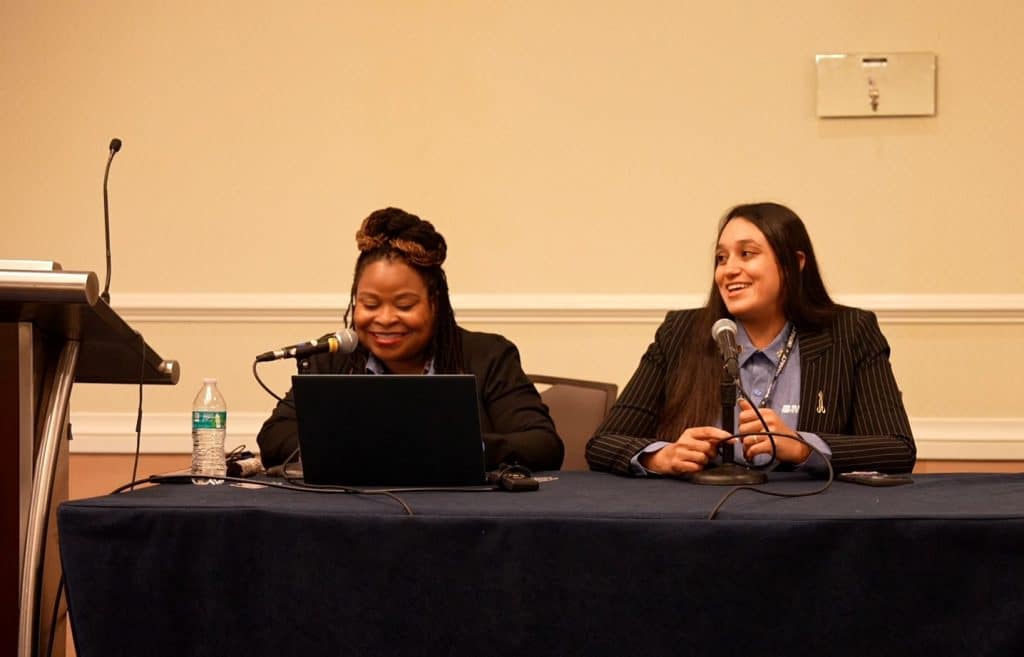
In the “Childcare: Challenges and Solutions, and What the Building Trades are Doing to Help” breakout, attendees heard from panelists on how inadequate childcare is preventing people from entering the trades, as well as pilot programs being implemented to help tradespeople and potential long-term solutions. In Milwaukee, for example, TradesFutures — the nonprofit set up by NABTU and contractor partners — put together a program to cover half the childcare costs of program participants. And Nontraditional Employment for Women (NEW) in New York City created a similar pilot program, helping union tradeswomen choose the childcare options and provider they needed in order to get to work. Importantly, all panelists emphasized the need for lasting solutions — namely, legislation that makes childcare available to all workers.
SMART sheet metal workers and Belonging and Excellence for All (BE4ALL) Committee members Sheena Jones (Local 36, St. Louis) and Amanda Filpo (Local 28, New York City) took center stage during the “Pioneering Progress: Highlighting DEI Success in NABTU Workforce Development Programs like SMART BE4ALL” breakout session. Along with an Ironworker member of the Navajo nation — who discussed the importance of inclusion and taking on workforce challenges with an Indigenous-specific lens — Jones and Filpo provided an overview on how diversity, belonging and inclusion are core to the labor movement’s values, demonstrating how BE4ALL’s work is making our union stronger. The pair pointed to BE4ALL’s existing success stories, such as the distribution of bathroom kits with menstrual products to JATCs across North America, as examples of material steps unions can take to bring more people into the trades.
“This is how you prove that you want to keep people in the industry,” Filpo said.
SMART caucus brings members together for the journey ahead
SMART General President Michael Coleman and the SMART Women’s Committee addressed and answered questions from TWBN attendees during the annual SMART caucus, which outlined our union’s dedication to bringing more women and underserved populations into our trade.
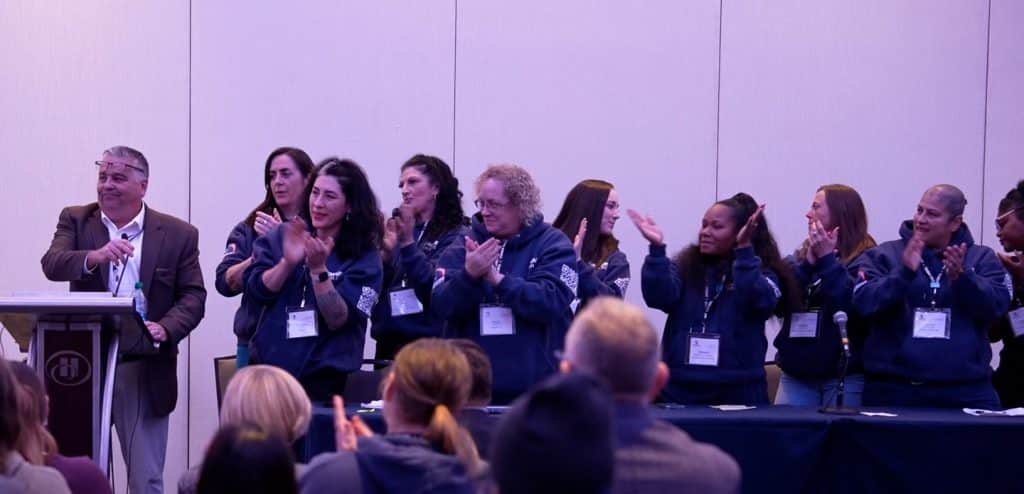
SMART Women’s Committee member Amy Carr kicked off the caucus by talking about growth, pointing out how many women have joined SMART since her first TWBN conference in Chicago in 2017, as well as how many local unions now have women’s committees. Chair Vanessa Carman then had the Women’s Committee members introduce themselves before subcommittee chairs overviewed the work they’ve undertaken in the last year, from working to increase the number of women in SMART and facilitating mentoring programs, to helping women members across North America create, sustain and strengthen local union women’s committees — and much more.
The Women’s Committee website has information and resources related to the on-the-ground work the committee is performing, committee member Subrina Sandefur said, including sister stories, information on parental support and childcare, and so much more. In addition, the Women’s Committee hosted a series of virtual events throughout the year, including informational sessions on pathways to leadership and union-wide Women In Construction Week celebrations.
General President Coleman then spoke to the caucus, acknowledging the work and leadership of the Women’s Committee.
“It is an honor to be here today, and it is an honor to represent you every day,” he said. “You are true trade unionists.”
Coleman paid tribute to the determination and fearlessness of women across our union, and said the women at TWBN reminded him of trailblazing workers’ and civil rights leaders from throughout history.
“You are making a difference in this world,” he explained. “There are so many people that don’t have the opportunity to make a difference. You are making a difference, a tangible difference, that you should all embrace, every single day.”
Our SMART sisters are changing the lives of working women across North America, Coleman continued, leading by example as they fight for better pay, working conditions and contracts that eliminate the gender pay gap. He vowed to walk in lockstep with women across our union as they take on those battles. “I want you to know that I’ve got your back,” he concluded. “General President Sellers, he led. And I’m promising each and every one of you: I will lead in the same way. We are going to continue in this movement, and I will fight for every single one of you.”
